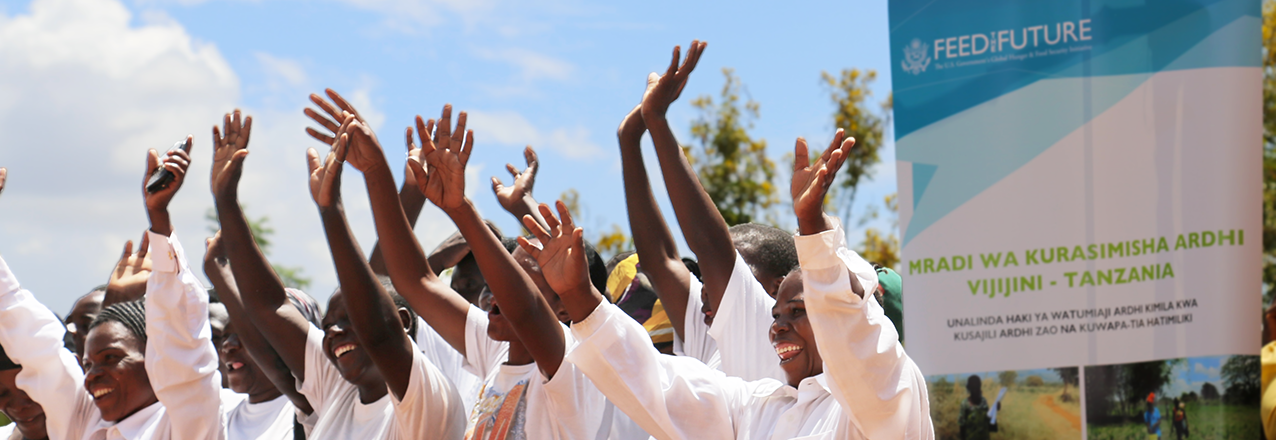Originally appeared on USAID’s website.
In many ways, Kinywang’anga is a typical Tanzanian village. Located in the central region of the country, it is home to quiet countryside and to hospitable locals, most of whom earn their living from the land. This small community, however, has big changes on the horizon.
Whereas most rural Tanzanians lack documented rights to their land, residents of Kinywang’anga are, for the first time, claiming such rights to their land—and local women like Anita Mfilinge are benefitting as a result.
Like most women in her village, Mfilinge was once unaware of her rights as a landholder. Her ability to hold land, she suspected, was merely a privilege. And surely, she told herself, this privilege must depend on the will of her husband and male relatives.
Mfilinge learned the extent of her rights when the Feed the Future Tanzania Land Tenure Assistance activity visited her community in September 2016. With the goal of registering claims on over 800 plots, the project got to work teaching men and women alike how to claim their land formally. Inspired, Mfilinge and her husband discussed their options, ultimately choosing joint tenancy. This gives her an equal stake in the couple’s properties. It also would secure her claim to them if her husband were to pass away.
Feed the Future is the U.S. Government’s global hunger and food security initiative. The project, which is implemented by USAID, is designed to reduce risks related to land tenure and pave the way for future agricultural investment in Tanzania’s rural heartland.
“This opportunity is a blessing for me. I now understand my right to access, own, use and transfer land,” Mfilinge said. “This gives me a reason to focus more on agricultural activities because I am a certified owner.”
These advances increase gender equality and economic growth alike. For women like Mfilinge, ownership spells greater security and independence; for communities, reduced conflict and better use of resources; and on a national scale, greater investment and agricultural productivity.
As the first community to participate in USAID’s land registration efforts in Tanzania, Kinywang’anga residents are also among the first to reap the rewards of this process. To date, over 350 villagers have registered land claims; more than half are women. What’s more, 68 percent of these women chose single occupancy, making them independent landholders.
“I now understand women’s land rights are fundamental human rights,” said Mfilinge. “Everyone has the right to own land alone or in association with others.”
The Feed the Future Tanzania Land Tenure Assistance activity, which runs from 2015 to 2019, aims to benefit over 14,000 villagers in 41 villages, registering an estimated 50,000 plots.


